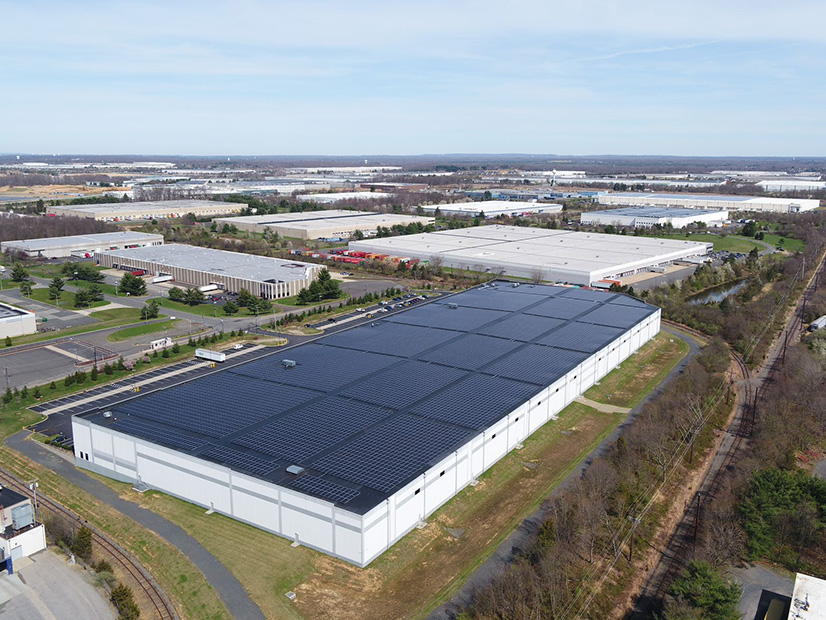New Jersey has enacted new remote net metering rules that increase the size and scope of solar projects eligible for the program but are less ambitious than lawmakers sought because Gov. Phil Murphy limited the expansion to protect ratepayers.
The Senate and Assembly voted unanimously Dec. 21 on a bill, S2848, that incorporated changes required by Murphy (D) when he conditionally vetoed the legislation.
Murphy, explaining his reasoning for the changes in a Nov. 27 veto statement, applauded the bill’s intent to “make solar energy more accessible to municipalities, schools and other public entities throughout New Jersey.” But he added that “the bill as currently drafted could prove extremely costly for New Jersey ratepayers.”
The Legislature, concurring with the veto, limited the size of remote net metering projects to 5 MW in the final bill, down from 10 MW initially sought by lawmakers. The final bill also placed remote projects under the state’s small solar facility incentive, in which the New Jersey Board of Public Utilities (BPU) sets the size of incentives through the Administratively Determined Incentives (ADI) program. The small solar facility program also limits the total annual capacity for all projects it awards each year to 50 MW.
In addition, the final version of S2848 allows eligible remote net metering projects to serve multiple public entities as subscribers without the need for a single host entity, which current rules require, and allow several hosts. The bill also allows public utilities to recover costs related to the remote net metering program in the same way they are able to do under the Community Solar program.
Sen. Bob Smith (D), a bill sponsor, said that despite the veto, the program will nevertheless “allow for more opportunities” for remote net metering.
Growth and Costs
The legislative tussle is part of the ongoing effort to stimulate the development of remote net metering projects that can help the state reach its solar capacity installation goals while also ensuring those developments don’t cost ratepayers too much. (See NJ Steps up Remote Net Metering Approvals.)
Remote net metering allows for the energy to be generated in a different place than where the energy is consumed. It enables an entity, such as a company or a government agency, that does not have space to erect a solar array to generate power at its main location to site a solar project at one or more separate sites and use the energy at the first location. State rules also allow a public agency to generate electricity that can be used remotely by other public bodies.
New Jersey implemented the state’s remote net metering program to create a solar option for municipalities and other public bodies that could meet several requirements of the state’s community solar program but could not match that program’s requirement to have a large number of subscribers.
State officials see remote net metering as part of the solar package that can help the state reach its goal of zero emissions by 2050, with solar reaching 12.2 GW of solar capacity installed by 2030 and 17.2 GW installed by 2035.
Smith said the aim of S2848 was to broaden the use of remote net metering beyond the private sector, which accounts for a large proportion of remote net metering projects installed to date.
“Why shouldn’t schools or school boards or county governments or township governments also be involved in net metering?” he said. “So it increases who can do net metering pretty significantly.”
One way the bill does that is by allowing the size of a remote net metering project to be set by the size of the aggregated energy use of the participating entities, not the average energy use, as has been the case up to now. The bill also allows the solar project and the energy receiving customers to be located on any property within the electric distribution company’s service territory, rather than requiring it to be on the public body’s own property.



